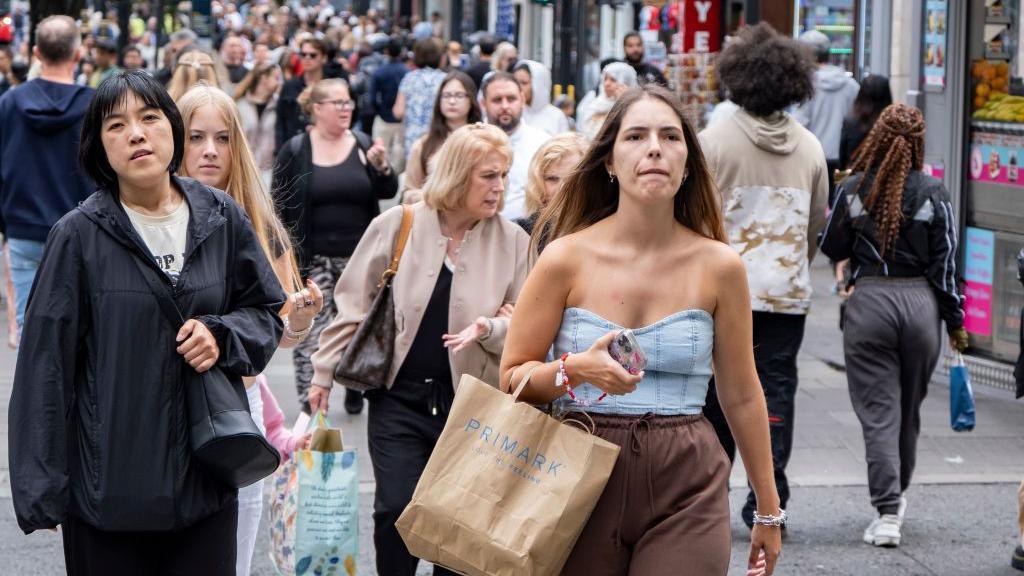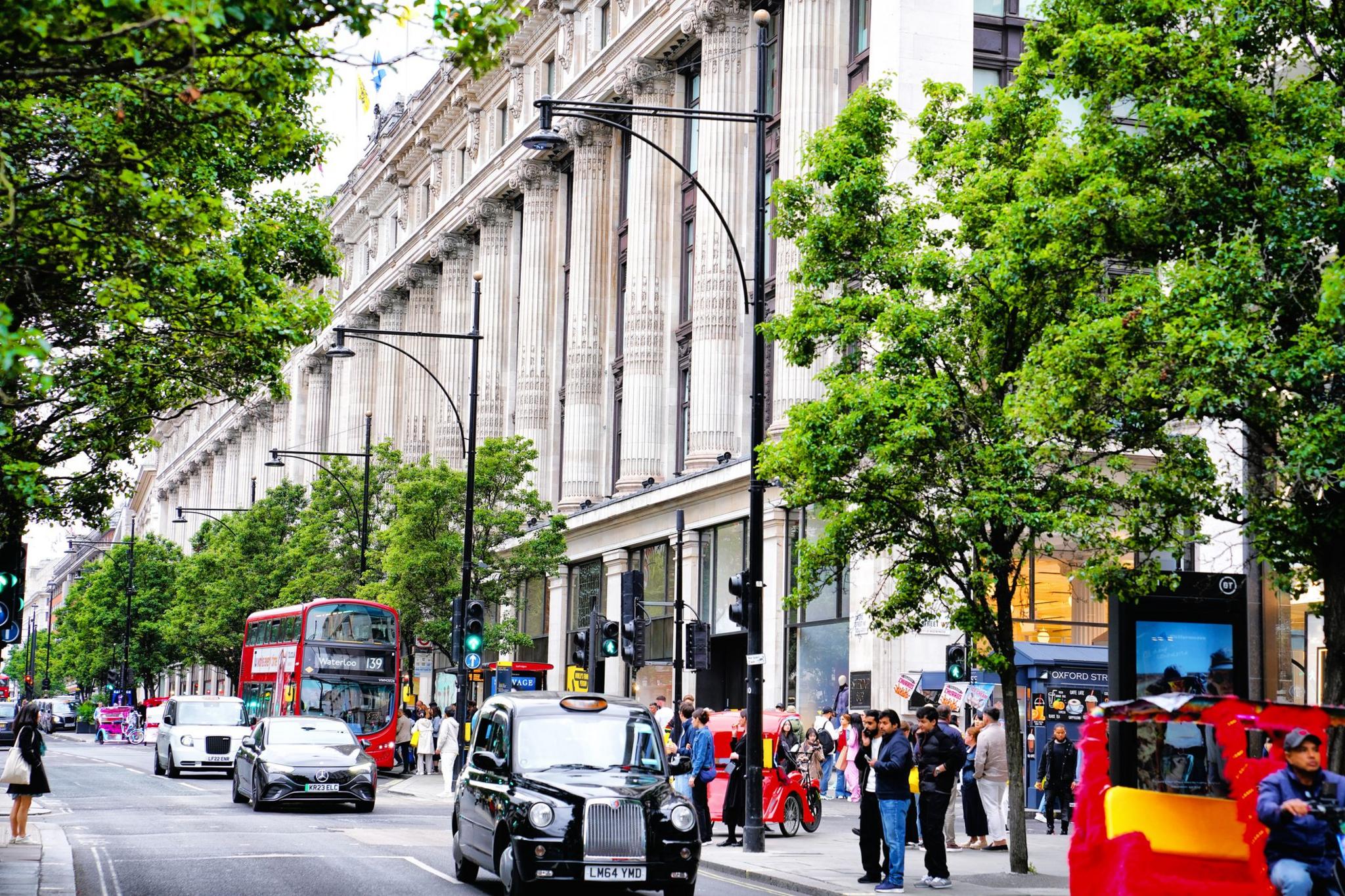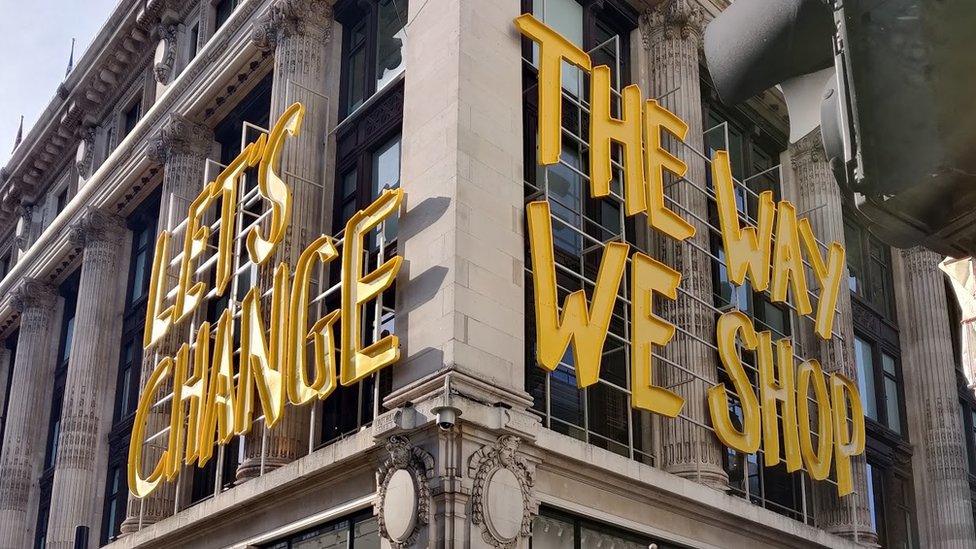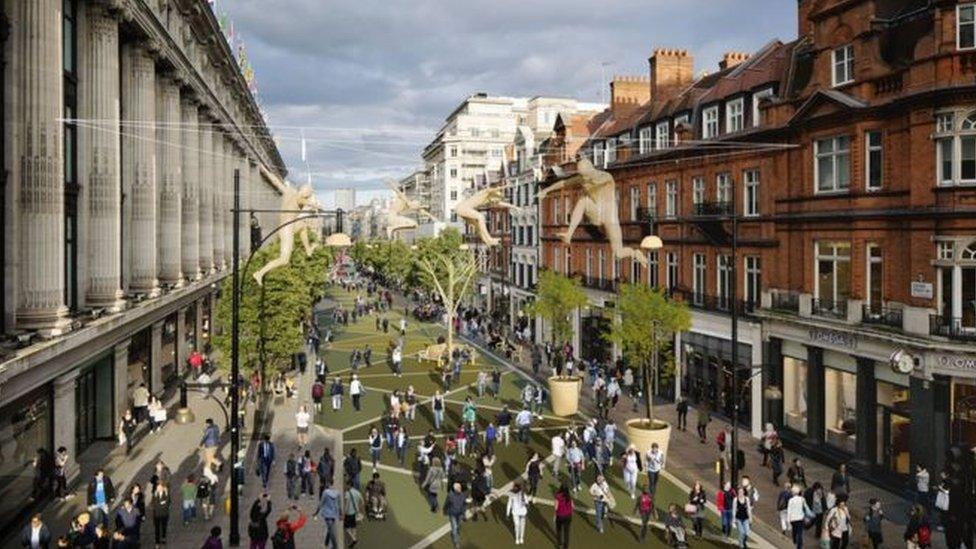Plans to ban traffic on Oxford Street announced

Sadiq Khan said the plans would restore Oxford Street to its "former glory"
- Published
Plans to pedestrianise part of London's Oxford Street have been announced by the capital's mayor.
Sadiq Khan said "urgent action" is needed to regenerate the famous high street, which was has been affected by a shift to online shopping and the Covid-19 pandemic.
“Oxford Street was once the jewel in the crown of Britain’s retail sector, but there’s no doubt that it has suffered hugely over the last decade", he said.
Under the proposal, a 0.7 mile (1.1km) stretch would be pedestrianised between Oxford Circus and Marble Arch, with the potential for further changes towards Tottenham Court Road.
The plan, which was blocked by the previous Conservative-controlled Westminster City Council for its unpopularity with residents, has received backing from Deputy Prime Minister Angela Rayner
She said the pedestrianisation "will drive growth by creating new jobs, generating economic activity, and giving a much-needed boost to London’s night-time economy.”
The plan will depend on Mr Khan gaining permission from Ms Rayner as housing, communities and local government secretary to establish a new Mayoral Development Corporation, which would provide planning powers and allow the mayor to overrule the council.
The project is expected to cost about £150m, with City Hall officials hoping local businesses, private funders and new revenue streams could foot the bill.

Traffic would be banned on a stretch between Oxford Circus and Marble Arch
The now Labour-run Westminster City Council, which is responsible for the central London street, said it was blindsided by Mr Khan's plans - only finding out details on Thursday - but it would "work constructively" with the mayor.
Stuart Love, Westminster City Council chief executive, said pedestrianisation posed "practical challenges" and it was waiting for details on "how long it could take to be delivered and how the concerns of local residents and users of the street will be addressed".
The council said it already developed a ready to go £90m plan, half-paid for by landowners, to deliver wider footways and reduced congestion.
But crucially their plan would maintain direct bus access to Oxford Street which they said was important to shoppers, workers, disabled, elderly, and those on low incomes.
Oxford Street is one of the world’s busiest shopping areas, with around half a million visitors each day.
Leading brands such as Topshop, House of Fraser and Debenhams have disappeared from the central London street in recent years, with the pandemic, hybrid working and US-themed sweet stores putting pressure on the street's popularity.
But the New West End Company, a partnership of businesses and property owners in the West End, said in a report this year footfall has been boosted by the Elizabeth line and Oxford Street has managed to attract new flagship stories like Ikea and HMV.
Related topics
- Published21 August 2023

- Published8 June 2018
